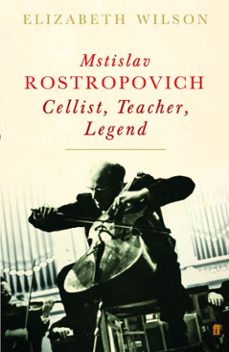Imprescindibles
Más vendidos Libros más leídos eBooks más leídos Todos los libros Todos los libros Autores destacados Series y sagas
Recomendados Libros recomendados Autores destacados Libros que inspiran Vidas con historia LGTBIQ+ English books
Ficción
Literatura Contemporánea Estudios literarios Clásicos Cuentos Poesía Teatro Libros de bolsillo Sagas literarias
Géneros literarios Novela romántica y erótica Novela negra Novela histórica Narrativa fantástica Novela de ciencia ficción Novela de terror Narrativa de humor Narrativa de viajes
No Ficción
Ciencias y tecnología Biología Ciencias Ciencias naturales Divulgación científica Informática Ingeniería Matemáticas Medicina Salud y dietas Formación Idiomas Estilo de vida Libros de Cocina Guías de viaje Narrativa de viajes Deportes Libros de Juegos Manualidades
Humanidades Autoayuda y espiritualidad Ciencias humanas Derecho Economía y Empresa Psicología y Pedagogía Filosofía Sociología Filología Biblioteconomía Estudios filológicos Estudios lingüísticos Estudios literarios Historia y crítica de la Literatura
Infantil
Juvenil
#Jóvenes lectores Narrativa juvenil Clásicos adaptados Libros Wattpad Libros Booktok Libros de influencers Libros de Youtubers Libros Spicy Juveniles Libros LGTBIQ+ Temas sociales Libros ciencia ficción Libros de acción y aventura Cómic y Manga Juvenil Cómic Juvenil Manga Shonen Manga Shojo Autores destacados Jennifer L. Armentrout Eloy Moreno Nerea Llanes Hannah Nicole Maehrer
Libros de fantasía Cozy Fantasy Dark academia Hadas y Fae Romantasy Royal Fantasy Urban Fantasy Vampiros y hombres lobo Otros Misterio y terror Cozy mistery Policiaca Spooky Terror Thriller y suspense Otros
Libros románticos y de amor Dark Romance Clean Romance Cowboy Romance Mafia y amor Romance dramatico Romance dramatico Romcom Sport Romance Otros Clichés Enemies to Lovers Friends to Lovers Hermanastros Slow Burn Fake Dating Triángulo amoroso
Cómic y Manga
Novela gráfica Novela gráfica americana Novela gráfica europea Novela gráfica de otros países Personajes, series y sagas Series y sagas Star Wars Superhéroes Cómics DC Cómics Marvel Cómics otros superhéroes Cómics Valiant
eBooks
Literatura Contemporánea Narrativa fantástica Novela de ciencia ficción Novela de terror Novela histórica Novela negra Novela romántica y erótica Juvenil Más de 13 años Más de 15 años Infantil eBooks infantiles
Humanidades Autoayuda y espiritualidad Ciencias humanas Economía y Empresa Psicología y Pedagogía Filosofía Historia Historia de España Historia Universal Arte Cine Música Historia del arte
Ciencia y tecnología Ciencias naturales Divulgación científica Medicina Salud y dietas Filología Estudios lingüísticos Estudios literarios Historia y crítica de la Literatura Estilo de vida Cocina Guías de viaje Ocio y deportes
ELIZABETH WILSON
Recibe novedades de ELIZABETH WILSON directamente en tu email
Filtros
Del 1 al 6 de 6
Faber & Faber 9780571261147
Published to coincide with Rostropovichs 80th birthday celebrationsMstislav Rostropovich, internationally recognised as one of the worlds finest cellists and musicians, has always maintained that teaching is an important responsibility for great artists. Before his emigration in 1974 from Russia to the West, Rostropovich taught several generations of the brightest Russian talents - as Professor of the Moscow Conservatoire - over a continuous period of two decades. His students included such artists as Jacqueline du Pre, Nataliyia Gutman, Karine Georgian, Ivan Monighetti and many others Rostropovichs teaching represented not only his individual approach to cello repertoire and instrumental technique, but also comprised a philosophy of life. As soon as he returned from his frequent concert tours, he would launch himself with whirlwind energy into his teaching activities. His lessons, which were conducted as open masterclasses , were awaited eagerly as an event of huge importance. Class 19 of the Moscow Conservatoire, where they were held, was usually packed with students (violinists , conductors and pianists as well as cellists). Often other professors dropped in, as did visiting musicians. The lessons were performances in themselves: Rostropovich - usually seated at the piano - cajoled and inspired his students to give the best of themselves. His comments went far beyond correcting the students in making them understand the essence of the work they were playing. Often this was done through striking imagery, and as such the lessons were addressed to the wider audience present in the classroom as well as to the individual student. Drawing from her own vivid reminiscences and those of ex-students, documents from the Moscow Conservatoire and extensive interviews with Rostropovich himself , Elizabeth Wilsons book sets out to define his teaching, and to recapture the atmosphere of the conservatoire and Moscows musical life.
Ver más
eBook
PROFILE BOOKS 9781847658081
Summer, 1951. Two suspected spies, Burgess and Maclean, have disappeared, and the nation is obsessed with their whereabouts.Speculation is at fever pitch when Colin Harris, a member of the Communist Party who has been in Germany for several years, turns up to see his old friends Dinah and Alan Wentworth. He has news: he has fallen in love with a girl in East Berlin, and is coming home - with her - for good. Meanwhile, Jack McGovern, who sometimes feels like the only decent man in Special Branch, has a rendezvous with a real spy. Miles Kingdom thinks theres a mole at MI5, and he wants McGoverns help.A novel about secrets, betrayal and unearthing the truth, The Girl in Berlin is a reminder that when nothing is as it seems, no-one can be trusted - even those you think you know best.
Ver más
eBook
PROFILE BOOKS 9781781254844
London, 1956. A young woman has been found dead in a hotel in King's Cross. Broke her neck falling down stairs, the death certificate says. But Fleet Street journalist Gerry Blackstone thinks there's more to it than meets the eye. Scotland Yard's not interested in accidental deaths - if that's what this is. But maybe he can convince Special Branch's DCI Jack McGovern to investigate. Fortunately for Blackstone, McGovern needs his help. The new Superintendent wants to sweep out corrupt officers, and McGovern's his broom. If Blackstone can keep news of the investigation out of the press, McGovern stands a chance of finding the bent cop. Meanwhile, Oxford is filling with Hungarian emigres fleeing the failed revolution. With the memories of Burgess and Maclean's defection still raw, Special Branch is concerned that there could be Soviet spies among the genuine refugees and wants McGovern on-hand to keep an eye out. As McGovern carries out his casework in Oxford and Blackstone investigates behind the scenes in London, clues start to emerge that, somehow, this might all be linked. The deeper they look, the more unrelated characters with shady pasts start to complicate the picture: the well-to-do madam, the Classics Professor, the East London crime boss, the Oxford doctoral student, the fiery Hungarian immigrant, the government minister ...does it all lead back to the dead girl in King's Cross? Or is there something even more sinister going on?
Ver más
Tapa blanda
Faber & Faber 9780571261154
Shostakovich: A Life Remembered is a unique study of the great composer, drawn from the reminiscences and reflections of his contemporaries. Elizabeth Wilson sheds light on the composers creative process and his working life in music, and examines the enormous and enduring influence that Shostakovich has had on Soviet musical life.The one indispensable book about the composer.New York Times
Ver más
eBook
NOWTILUS 9788497631655
Manuales de Sexo. En cada uno hay multitud de fotos de posturas imposibles realizadas en un estado de casi limpieza clínica o dibujos de hombres con barba, que parecen un tributo a los Bee Gees, haciendolo a (y no con) pasivas e inexpresivas parejas.Bueno, esto no es un manual de sexo. No encontraras ninguna foto aqui. Lo que vas a encontrar son ideas inspiradoras para gente que ha perdido un poco de su toque en la cama. Por eso, si tu y tu pareja sufris la rutina, estais demasiados cansados del trabajo o de cuidar a los hijos hasta el punto de que fingidos dolores de cabeza os impidan gozar, entonces ¡Te puedo ayudar¡ Elisabeth Wilson.Revitaliza tu vida sexual es una coleccion de ideas inspiradoras para mejorar sus relaciones, en todos los aspectos. No es un manual de sexologia; es un libro dirigido a las personas de la vida real, con un lenguaje directo y sencillo, pero sin tabues. Sus lectores solo tienen que querer mejorar su vida sexual. Los requisitos: un poco de esfuerzo e imaginacion.
Ver más
Otros
Del 1 al 6 de 6
































